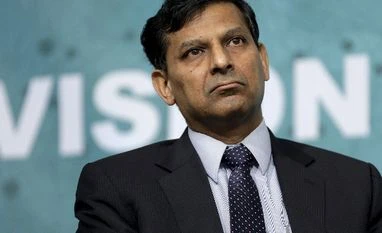Rajan also said labour market reforms can boost growth, but the process may draw opposition.
Delivering a lecture on 'The Global Economy and India', the former Chief Economist of IMF said new rules need to be evolved for international monetary policy and called for the emerging markets like India to "speak up and raise their voice louder" to have a say in setting the global agenda.
The Governor said India is fairly safe from volatile global economy and it has posted 7.5% growth despite two droughts and weak international market.
"Despite two droughts and weak international market scenario, we are registering about 7.5% growth because of macro level stability," he said.
While there is a need to ensure macro level stabilisation, the country would have to keep inflation under control and cleanse the banks, he said. "This can strengthen macro level stability," he said.
In addition to that, maintaining reforms would attract both international and domestic investors and spur activities, Rajan said.
Stating that structural reforms are important for elevating the potential of economy, the RBI Governor said degree of competition and level of participation of different segments of society should be raised in order to bring more and more people into the workforce.
However, it may be difficult politically to speed up structural reforms and while labour market reforms can boost growth, the process may draw opposition, the outspoken Governor said.
Describing a good policy as the first line of defence for the economy, he said in order to ensure safe borrowings, the country should try to opt for long-term borrowings instead of short-term ones.
On the need for intervention in the realm of exchange rate to reduce volatility, Rajan said the country's foreign exchange reserve has gone up to $360 billion, which can also be described as a strong line of defence for Indian economy in the context of adverse global scenario.
"We are now fairly safe against global volatility, provided we continue maintaining this policy," he said, adding that Indian economy is not as vulnerable now as it was in 2013.
Stating that there may be uncertainties because of the policies of other countries and volatile international market, he said India, which remains largely protected and vigilant, should focus on building a strong policy.
On evolving new rules of the game for international monetary policy, Rajan said emerging markets should try to present their ideas on different issues, like getting more IMF quota, before international fora.
Stating that there should be a more responsible global monetary policy that follows rules of the game, he said a number of countries are now blaming each other over adoption of aggressive policies.
All have domestic mandate as they have to worry about several things like ensuring growth and keeping inflation rate under control, he said.
Referring to "helicopter money", Rajan said it can always push inflation and maintained that easy money can never provide answer to any problem.
He said contrary to general belief, experiences in some countries show that low interest rates lead to high savings instead of pushing investment.
You’ve hit your limit of {{free_limit}} free articles this month.
Subscribe now for unlimited access.
Already subscribed? Log in
Subscribe to read the full story →

Smart Quarterly
₹900
3 Months
₹300/Month
Smart Essential
₹2,700
1 Year
₹225/Month
Super Saver
₹3,900
2 Years
₹162/Month
Renews automatically, cancel anytime
Here’s what’s included in our digital subscription plans
Access to Exclusive Premium Stories Online
Over 30 behind the paywall stories daily, handpicked by our editors for subscribers


Complimentary Access to The New York Times
News, Games, Cooking, Audio, Wirecutter & The Athletic
Business Standard Epaper
Digital replica of our daily newspaper — with options to read, save, and share


Curated Newsletters
Insights on markets, finance, politics, tech, and more delivered to your inbox
Market Analysis & Investment Insights
In-depth market analysis & insights with access to The Smart Investor


Archives
Repository of articles and publications dating back to 1997
Ad-free Reading
Uninterrupted reading experience with no advertisements


Seamless Access Across All Devices
Access Business Standard across devices — mobile, tablet, or PC, via web or app



)
